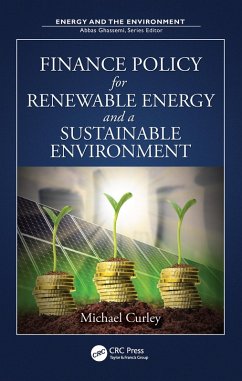This book explains how environmental projects and improvements are achieved through the imposition of regulations, on the one hand, and financial incentives on the other. It discusses how those incentives can be organized to achieve the greatest environmental benefits at the lowest possible cost to the public. It presents the best environmental finance policies for the financing of alternative energy projects so that the ultimate cost of delivered power will decline. It also examines the challenges of the next generation of environmental programs.
Dieser Download kann aus rechtlichen Gründen nur mit Rechnungsadresse in A, B, BG, CY, CZ, D, DK, EW, E, FIN, F, GR, HR, H, IRL, I, LT, L, LR, M, NL, PL, P, R, S, SLO, SK ausgeliefert werden.


